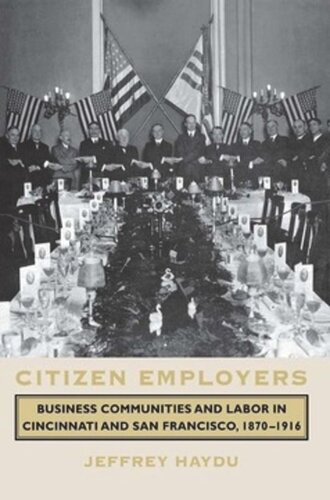

Most ebook files are in PDF format, so you can easily read them using various software such as Foxit Reader or directly on the Google Chrome browser.
Some ebook files are released by publishers in other formats such as .awz, .mobi, .epub, .fb2, etc. You may need to install specific software to read these formats on mobile/PC, such as Calibre.
Please read the tutorial at this link: https://ebookbell.com/faq
We offer FREE conversion to the popular formats you request; however, this may take some time. Therefore, right after payment, please email us, and we will try to provide the service as quickly as possible.
For some exceptional file formats or broken links (if any), please refrain from opening any disputes. Instead, email us first, and we will try to assist within a maximum of 6 hours.
EbookBell Team

5.0
90 reviewsThe exceptional weakness of the American labor movement has often been attributed to the successful resistance of American employers to unionization and collective bargaining. However, the ideology deployed against labor's efforts to organize at the grassroots level has received less attention. In Citizen Employers, Jeffrey Haydu compares the very different employer attitudes and experiences that guided labor-capital relations in two American cities, Cincinnati and San Francisco, in the period between the Civil War and World War I. His account puts these attitudes and experiences into the larger framework of capitalist class formation and businessmen's collective identities.
Cincinnati and San Francisco saw dramatically different developments in businessmen's class alignments, civic identities, and approach to unions. In Cincinnati, manufacturing and commercial interests joined together in a variety of civic organizations and business clubs. These organizations helped members overcome their conflicts and identify their interests with the good of the municipal community. That pervasive ideology of "business citizenship" provided much of the rationale for opposing unions. In sharp contrast, San Francisco's businessmen remained divided among themselves, opted to side with white labor against the Chinese, and advocated treating both unions and business organizations as legitimate units of economic and municipal governance.
Citizen Employers closely examines the reasons why these two bourgeoisies, located in comparable cities in the same country at the same time, differed so radically in their degree of unity and in their attitudes toward labor unions, and how their views would ultimately converge and harden against labor by the 1920s. With its nuanced depiction of civic ideology and class formation and its application of social movement theory to economic elites, this book offers a new way to look at employer attitudes toward unions and collective bargaining. That new approach, Haydu argues, is equally applicable to understanding challenges facing the American labor movement today.